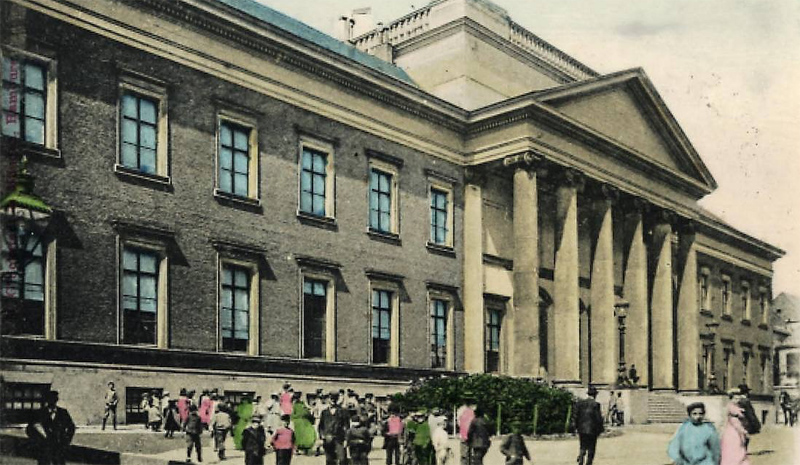Call for Papers: Dutch Historians’ Days 2019: Inclusive History (Groningen, 22-24 August 2019; Deadline 28 January 2019)
14 januari 2019
 Preparations for the biennial Dutch Historian’s Days (from the 22nd to the 24th of August 2019) are in full swing. The three-day event, jointly organised by the Royal Netherlands Historical Society (KNHG) and the History Department of the University of Groningen (UG), is meant for everyone interested in history, professionally or otherwise.
Preparations for the biennial Dutch Historian’s Days (from the 22nd to the 24th of August 2019) are in full swing. The three-day event, jointly organised by the Royal Netherlands Historical Society (KNHG) and the History Department of the University of Groningen (UG), is meant for everyone interested in history, professionally or otherwise.
The event showcases the many diverse and dynamic ways of doing history. Through a wide spectrum of lectures, debates, and workshops the Historian’s Days tackle issues and challenges on the frontline of historical research and public debates. Keywords include networking, inspiration, orientation, career, and relaxation.
The Historian’s Days are modeled on well-known, influential and professional conferences abroad, such as the annual gatherings of the American Historical Association and the biennial Historikertag of the Association of Historians in Germany.
The Historian’s Days 2019 evolve around the theme of Inclusive History, and promote diversity in participants, audience, program, stories, methods and presentations.
Call for papers
Everyone involved in the study of history is invited to submit suggestions for papers, presentations, sessions, workshop etc. The submission deadline is 28 January 2019. A programme committee will select proposals and put together the definite program.
Controversies
Controversies are meant to provoke debate. They relate to pressing current issues and discussions from the various fields of historical work, be it academia, teaching, museums, archives, politics or policymaking. Controversies enable interdisciplinary work and cross-fertilisation, with regard to both content and participants.
A controversy session (approximately 1,5 hours) is guided by one or more statements for discussion. Statements may be formulated by individual researchers, but also by organisations (societies, journals, interest groups, etc.).
Following the theme of ‘Inclusive History’, we encourage diversity within the sessions. Your submission should include a description of how you intend to flesh out diversity within the session. We realise that that this question itself might be controversial. After all: Inclusivity is about politics, just as any other historical viewpoint.
Sessions
Sessions are meant for individual – or group presentations on innovative historical research. They can also serve as ‘working labs’ aimed at the presentation of new projects and approaches, in particular in teaching and educating in schools and heritage institutions. Sessions on the application of new digital research methods and presentation techniques could also be accommodated here.
A session (max. 1,5 hours) consists of max. 5 speakers, allowing some space for discussion. Session proposals may have different formats: a selection of papers, a debate, project presentations, interactive workshops and other creative formats – such as network activity or a guided tour – are viable options.
Following the theme of ‘Inclusive History’, we aim at diversity within the sessions. We encourage you to include a description of how you intend to flesh out diversity within the session. We realise that this question itself might be controversial. After all: Inclusivity is politics, just as any other historical viewpoint.
Procedure
Please submit your proposal for a controversy or a session before 28 January 2019 via the conference website: https://historicidagen.socialhistoryservices.org/. Your proposal should include a title and a description of max. 500 words of the aim and format of the presentation as well as short biographies and contact details of the participants (max. 60 words per person).
Before 1 April 2019 a programme committee will select proposals based on content, originality, and relevance. The committee might ask for changes or reject proposals. Individual papers will be grouped in sessions.
The conference has no access to funds for defraying the cost of participation, travel, or accommodation.
